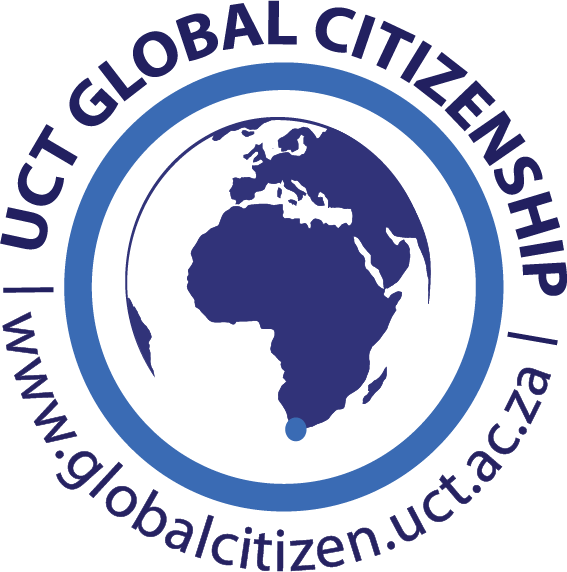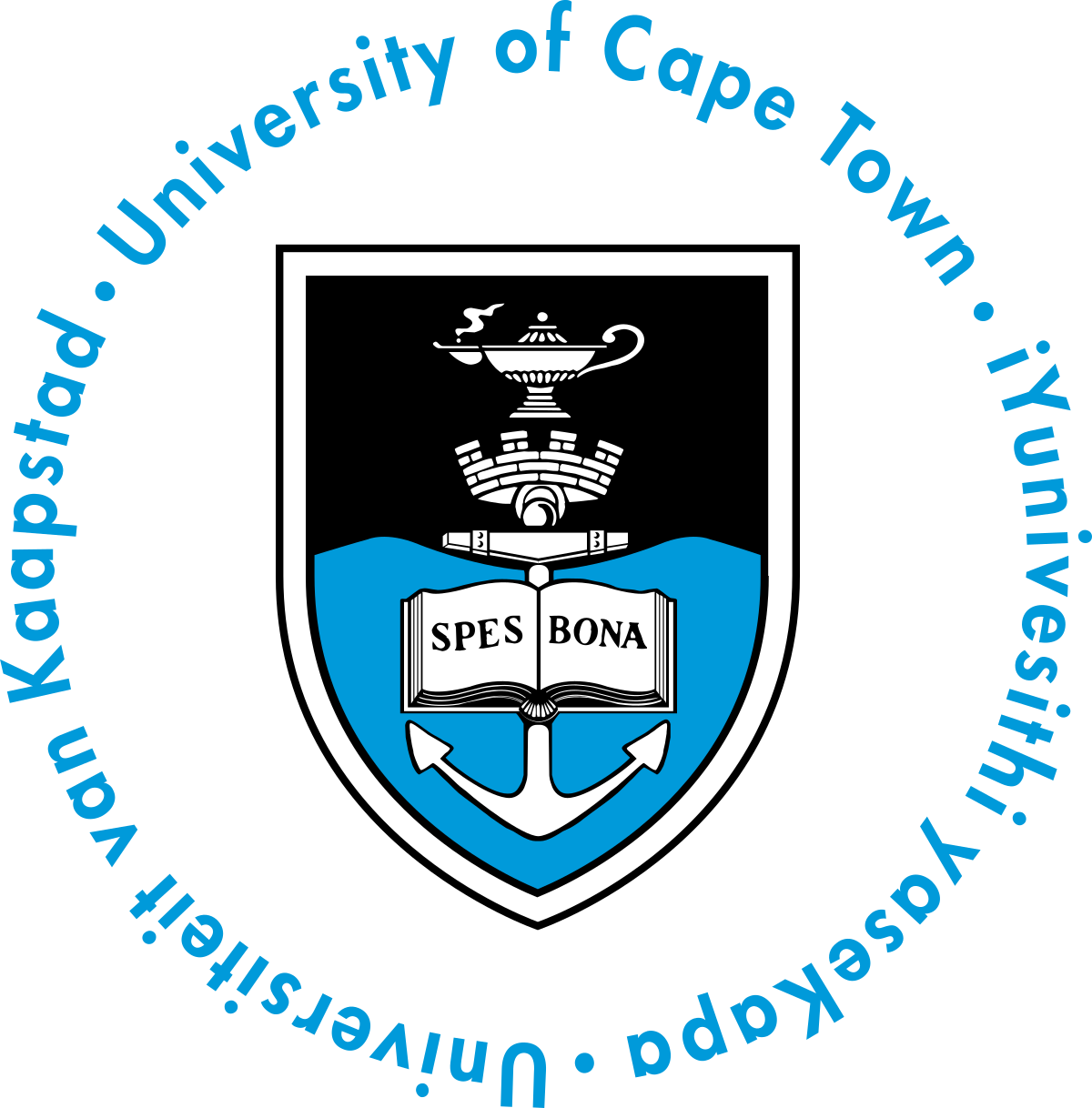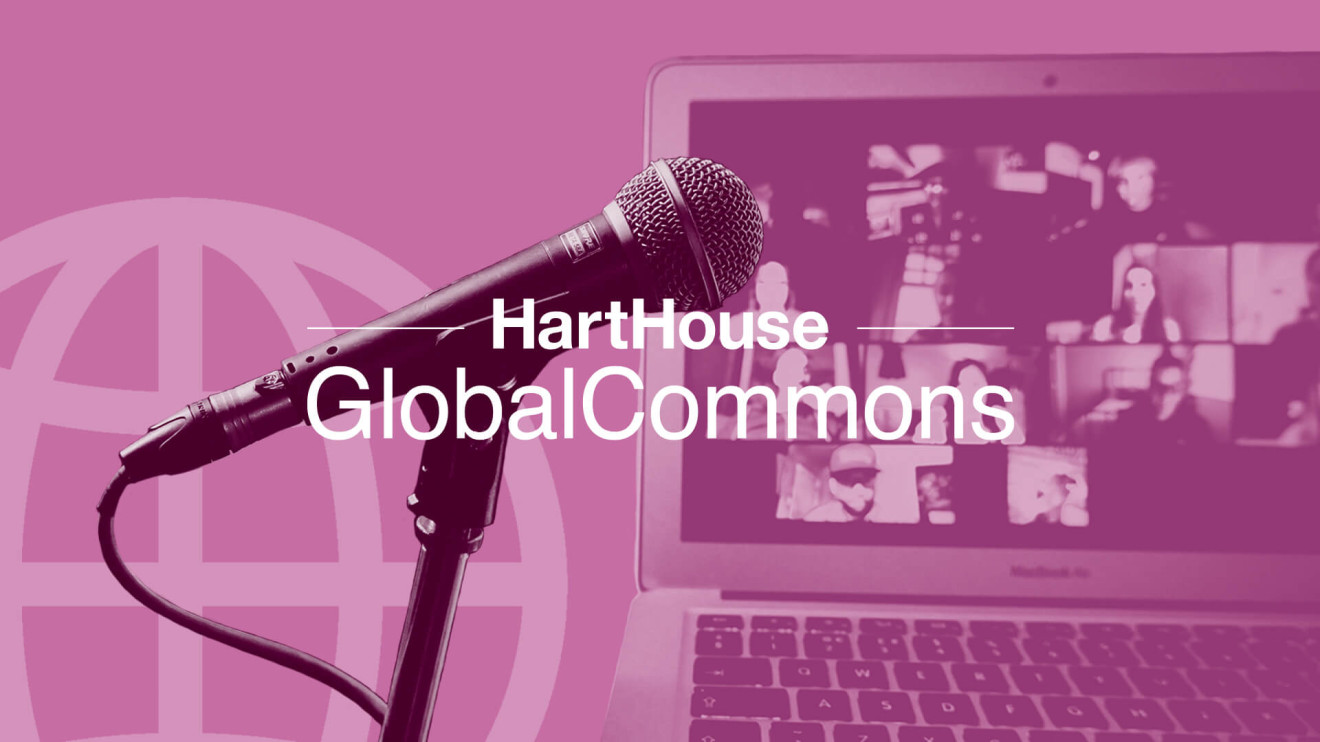
Join students from around the world for an interactive discussion about what one of the most powerful movements and moments of our time can teach us about global organizing for liberation and justice.
Overview
The year 2020 bore witness to mass protests around the world in response to the murder of George Floyd in the U.S.A, the latest in a string of killings of Black people at the hands of the police. Has anything changed in the year that has passed? Are there any conclusive results that have come from appeals for accountability? What overlaps exist with other similar movements, like #RhodesMustFall in South Africa?
American-born, and Cape Town-based scholar, writer and artist, Kim M Reynolds, will join us to discuss the Black Lives Matter movement, its expression in the U.S.A, as well as the power of a flexible movement that allows it to be rooted across the globe. Kim will be joined in conversation by Rebecca Ann Wilcox, an American doctoral student and writer, and Kanishka Sikri to explore what we can learn from the Black Lives Matter movement, its longevity and power in connecting across different global contexts, and how we can collectively come together to build relationships, practice community, and heal through shared creation and commitment to abolition.
Black Lives Matter as a sentiment can gain immense strength when we don’t just say ‘Black Lives Matter’, but we commit to dismantling and burning all the things that make Black lives — particularly Black trans, queer, femme, indigenous, fat, differently abled, working class — to not matter in this current world. Doing the work of critique, such as organizing, writing, and gathering, create accessible entry points into the terrain of the violence of whiteness and imagining — imagining better worlds, better ways to commune, better ways to dance and do pleasure and rest — creates exit points of more dignified narratives and futures.
Kim M Reynolds
Format
Following the discussion, participants will have the opportunity to join small, facilitated breakout groups with students from participating global locations, to discuss their own experiences and perspectives, and to engage in a shared creative activity, a collective poem. Don’t miss this essential opportunity for learning, connection and creation.
Speakers
-
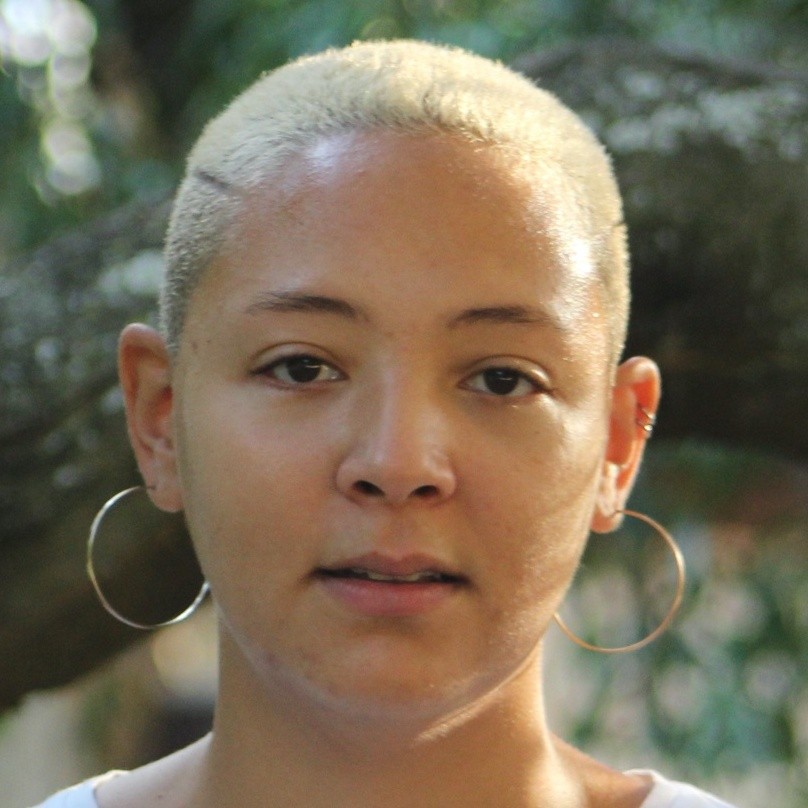 Speaker
SpeakerKim M Reynolds
Scholar, writer, and cultural worker
Kim M Reynolds is a Black and queer critical media scholar, writer, and cultural worker from Ohio in the US, based in Cape Town, South Africa whose work focuses on the narrative and critique of Black arts and politics. Kim holds two masters degrees in media and film from the London School of Economics and Political Science (LSE) and University of Cape Town (UCT) where she focused on discursive colonialism in popular culture and news, Black and African feminist studies and Black queer theory, Black film, and photography as an a liberatory tool in Black imagination.
Kim is currently a guest lecturer on critical media analysis, and is co-lead of the research and organizing collective Our Data Bodies, which examines how technology and big data reproduce racism. Kim is also a co-producer of Blackness and Dance, an independent study on Black identity and dance for radio in Cape Town.
-
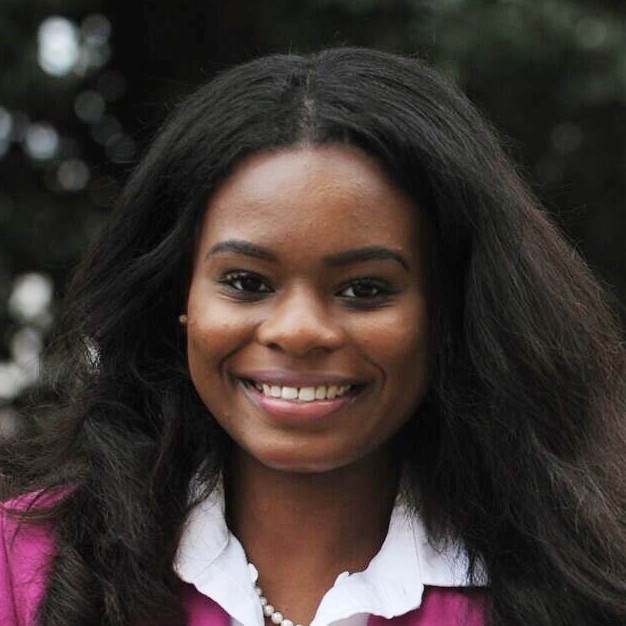 Speaker
SpeakerRebecca Ann Wilcox
American doctoral student, writer
Rebecca Ann Wilcox was born in the south Bronx of New York where she was raised, nurtured, and loved by the hustle and grit of urban Black women. Wilcox’s upbringing was the genesis to answering her call to the grotesque work of race, gender, class, and abolition. She is currently a doctoral student at Princeton Theological Seminary in Princeton, NJ under the department of Religion and Society. Her research explores the hauntings of Black, radical, freedom epistemologies for people who navigate the ruins of society or underground economies. She uses Black feminist methodologies to illuminate the lived experiences of poor Black women, as an urgent case for abolition.
In addition to her doctoral work, Wilcox has earned a Bachelor of Arts in philosophy and religion from Clark Atlanta University. She served in many leadership capacities such as vice-president of the Alpha Pi chapter of Alpha Kappa Alpha Sorority, Incorporated, president of the CAU debate team, a chapel assistant at Morehouse College Martin Luther King Jr. International Chapel and organized various protests and campaigns against policies within administration that were in violation of Title IX. Her leadership further led her to pursue a master’s degree at Vanderbilt University where she earned a Master of Theological Studies with a specialization in ethics. She published three academic articles rooted in thematic discourses surrounding Black women’s agency and wholeness. Wilcox’s latest publication is for The Immanent Frame’s public forum on Antiblackness as Religion: Black Living, Black Dying, and COVID-19. Her article was entitled, “Distorted Mirrors, Toward a Clear Gaze on Black Suffering.”
Wilcox has traveled to countries such as South Africa to conduct independent research on globalization and its impact on Black experiences across the diaspora. Beyond her commitments to freedom and justice, she finds her joy to be rooted in the pleasures of friendship, auntie-hood, and all things Toni Morrison. Wilcox believes that through education, community, and radical resistance one may access the tools they need to become free.
-
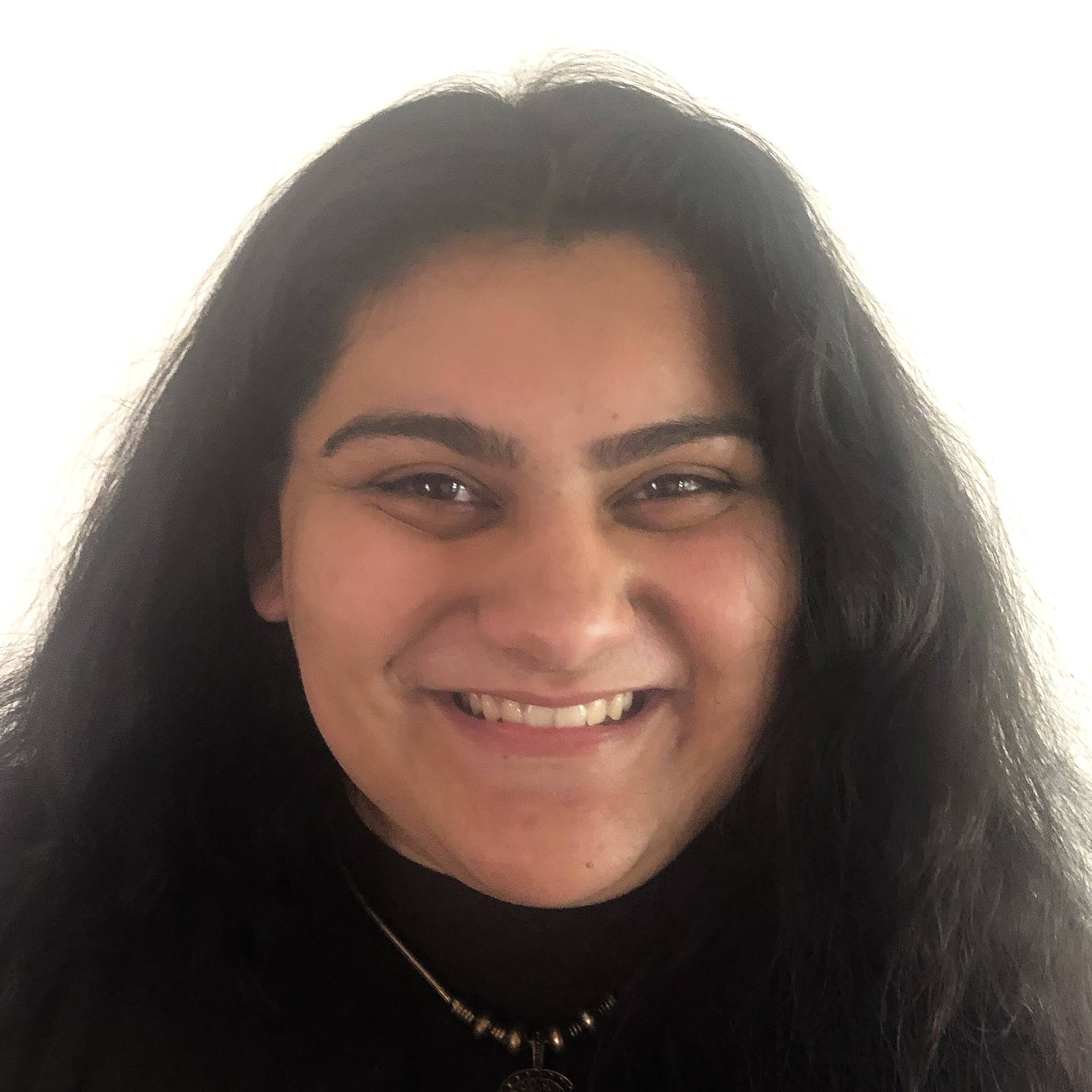 Moderator
ModeratorKanishka Sikri
Feminist writer, consultant
Kanishka Sikri is a feminist writer, consultant, and theorist unravelling the multiple faces and forms of raced-sexed-gendered violence. Committed to crafting new creative lineages from post-de-colonial thought and transnational intersectionality, she yearns to make sense of the messiness of violence as the mother tongue of our dominator culture so as to cultivate worlds without its mutilating bounds.
Her hope is that in unsettling the contradictory violence and oppressive logics of power we have become settled to, we are able to settle in free, liberatory and pluriverse worlds. Kanishka is formally trained as an international development specialist from the Centre for Critical Development Studies at the University of Toronto, and is a South Asian immigrant settler from Dubai, in Tkaronto.
Website
About the Global Commons
The Hart House Global Commons is an international dialogue space that connects students participating from multiple global locations to engage in real-time conversations about issues that are pressing and pertinent to everyone, regardless of place. We hope you will join us for a unique opportunity to connect across contexts, exchange dialogue and perspectives, and learn from each other—all without leaving your living space!
Community Supporters
Michael R. De Angelis & Family Global Innovation Fund.
Co-Presenters
This event is presented in partnership with the Global Citizenship Programme, at the University of Cape Town.
